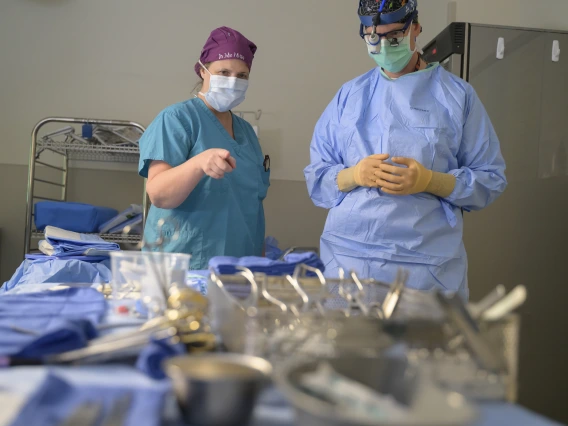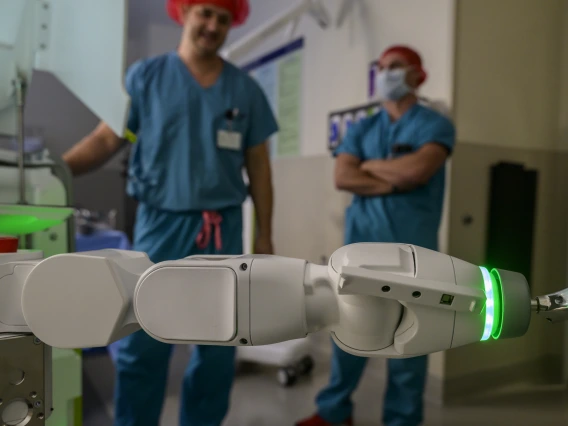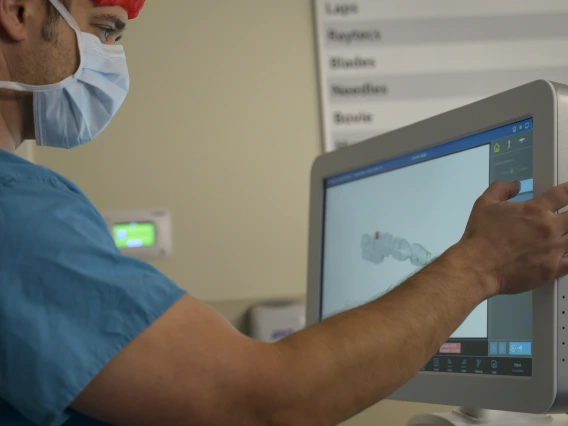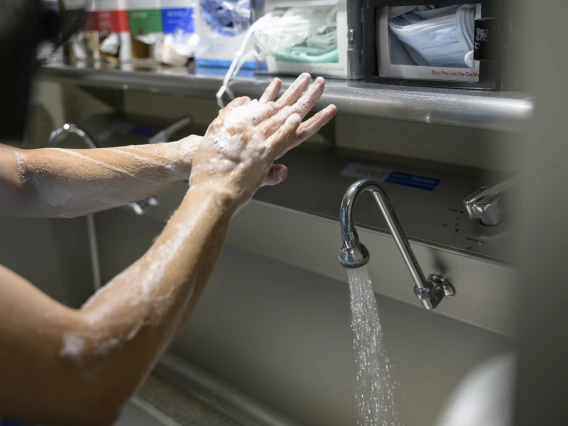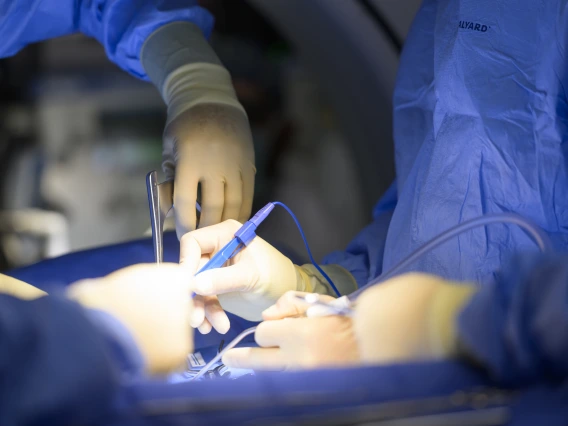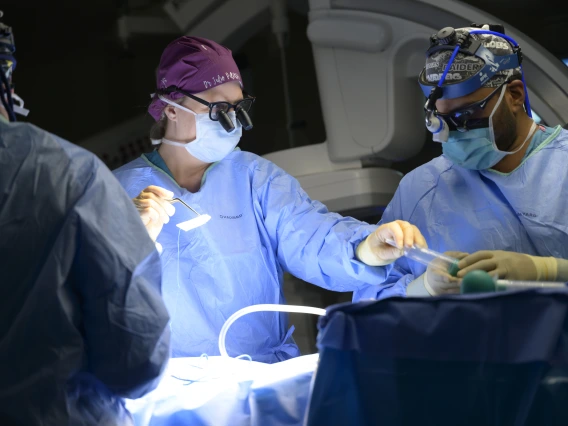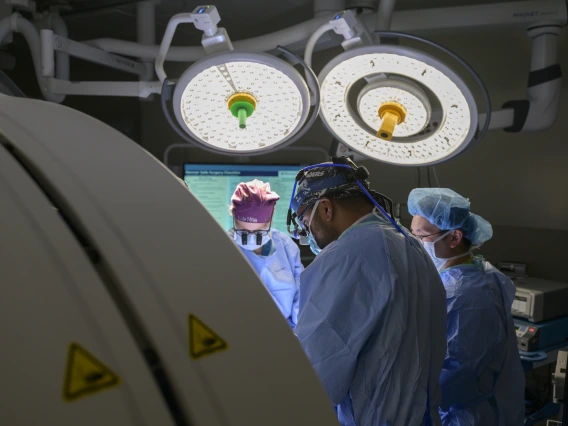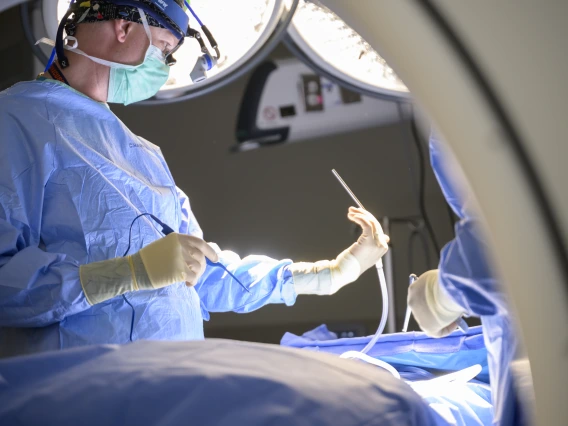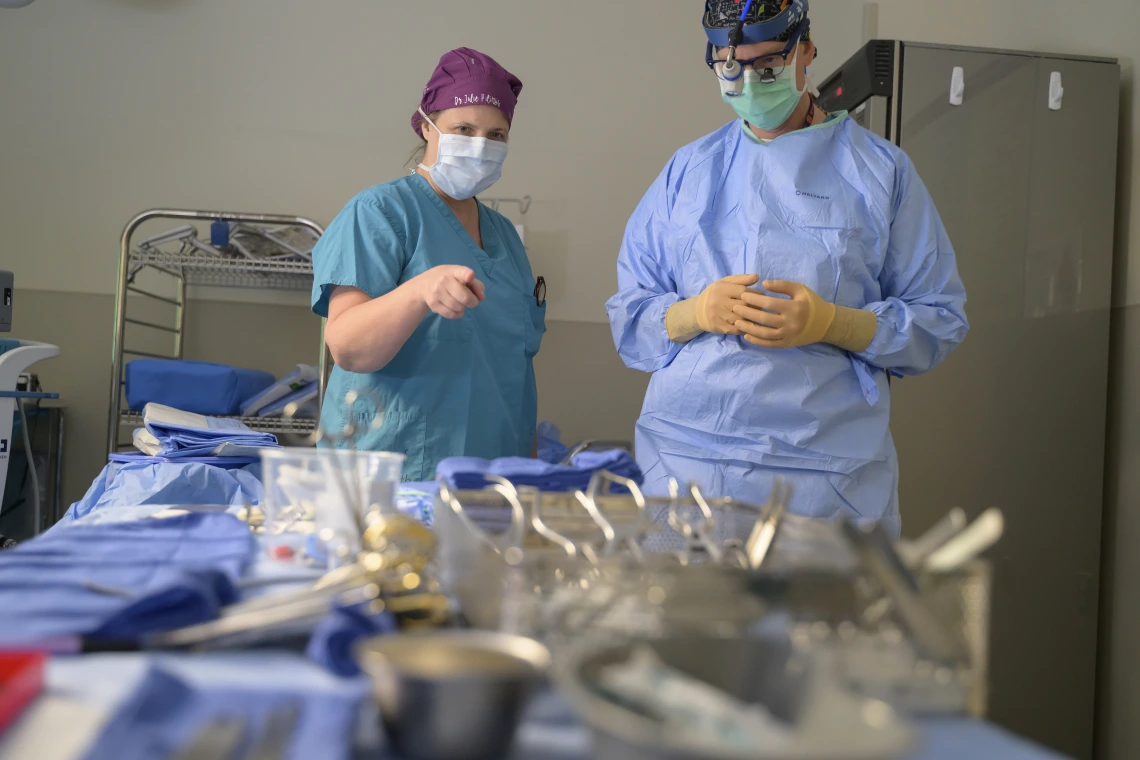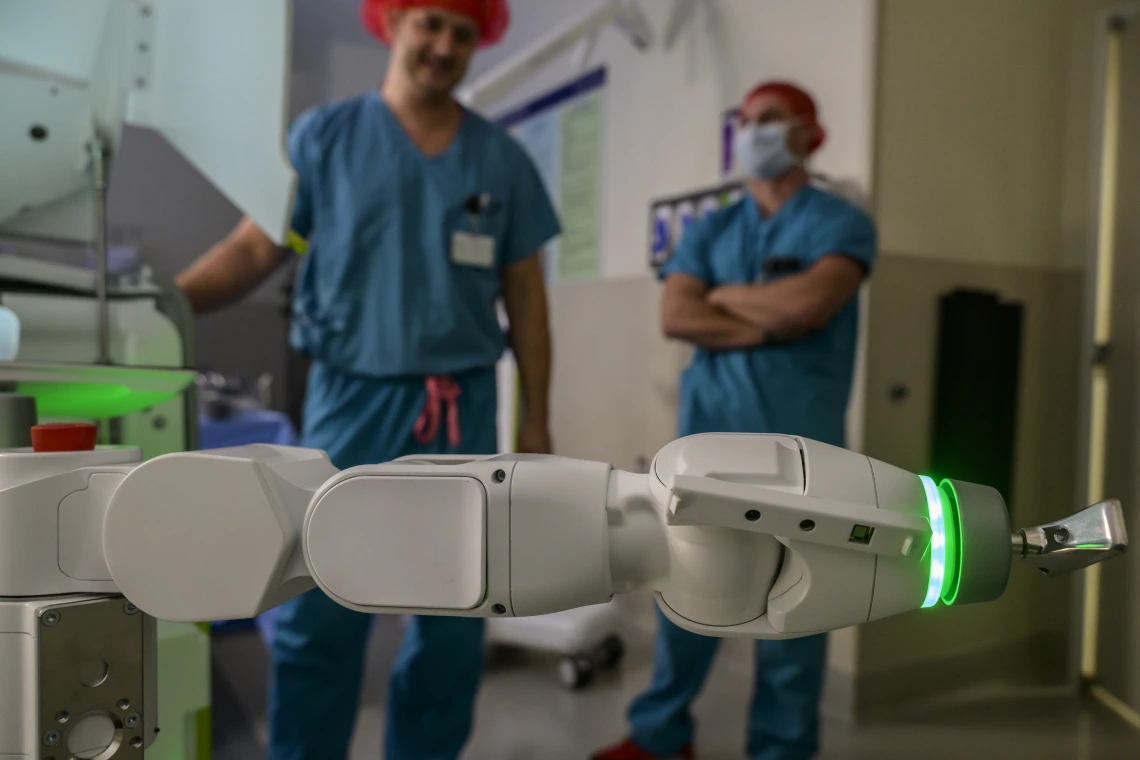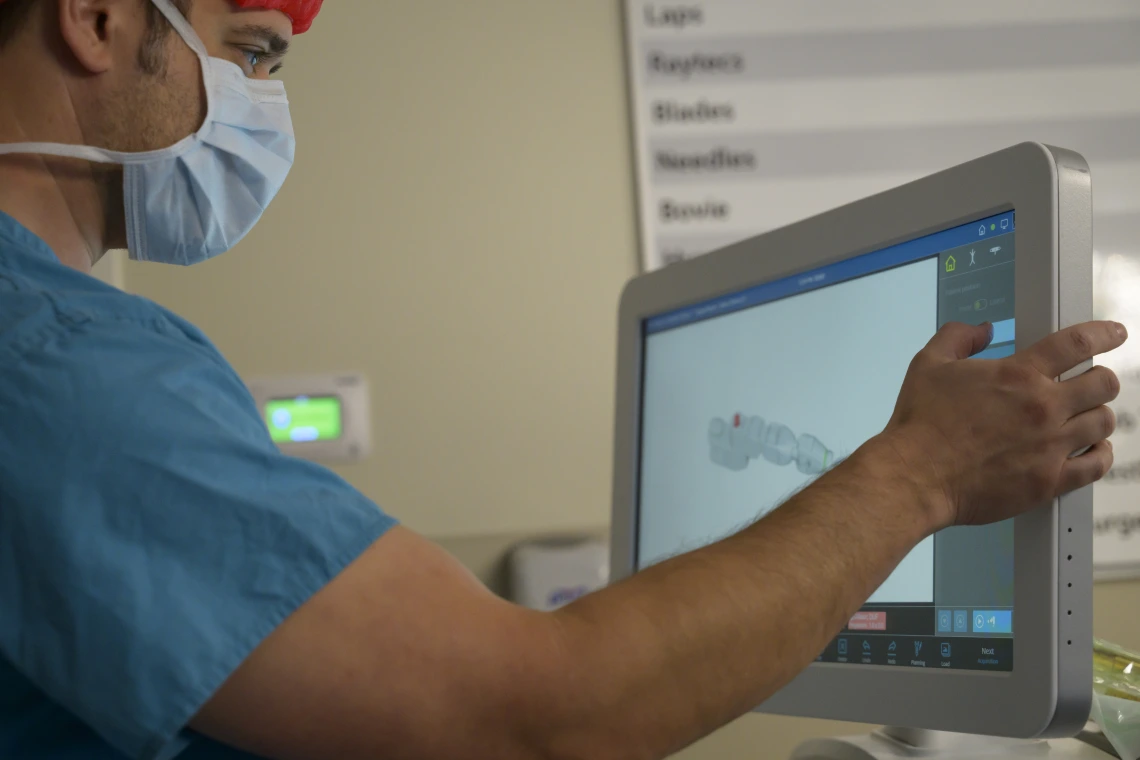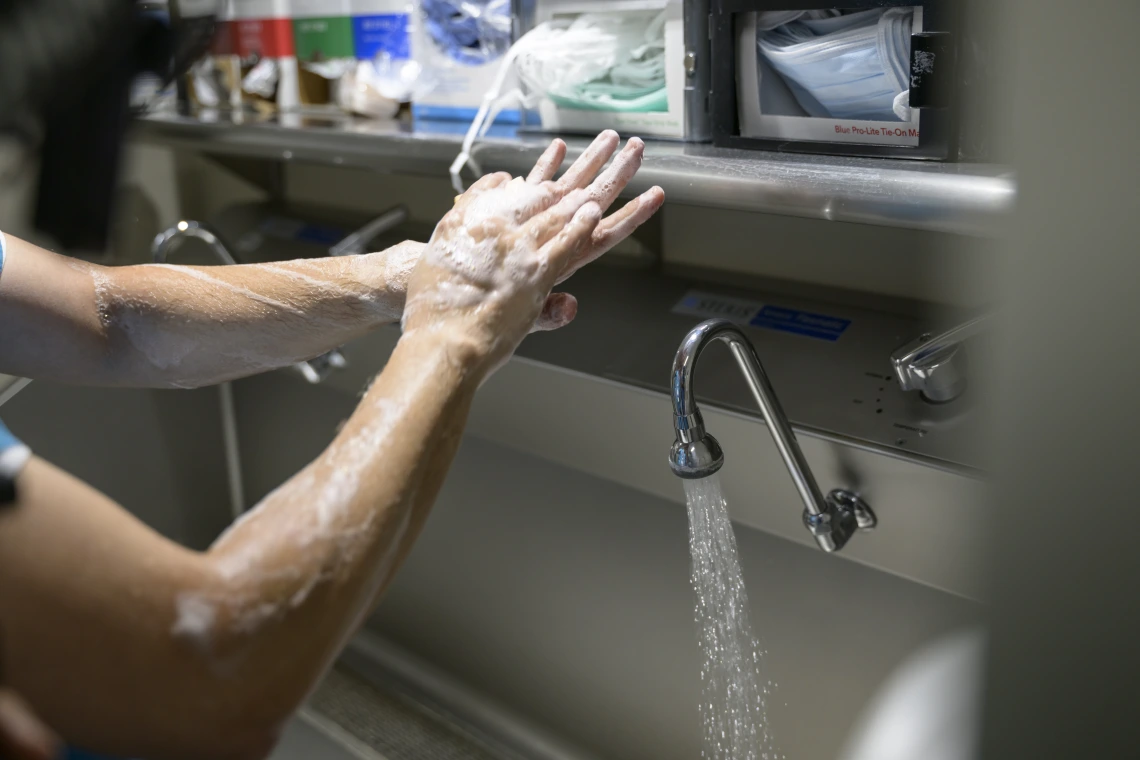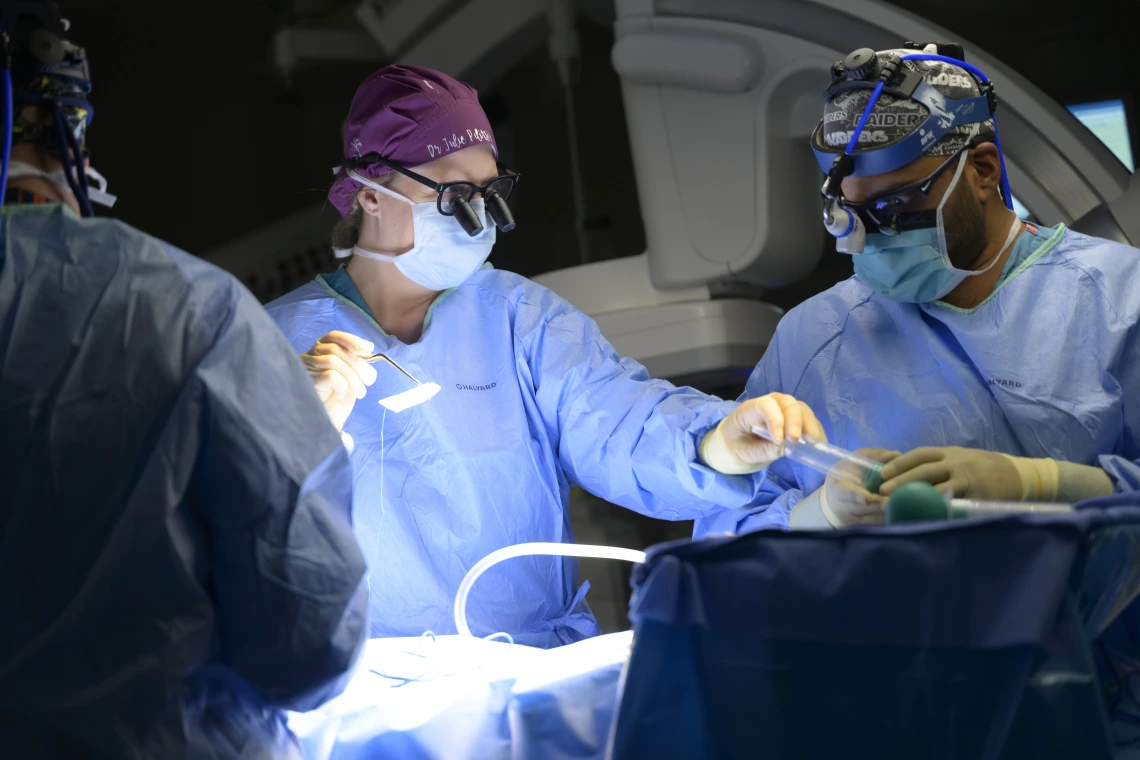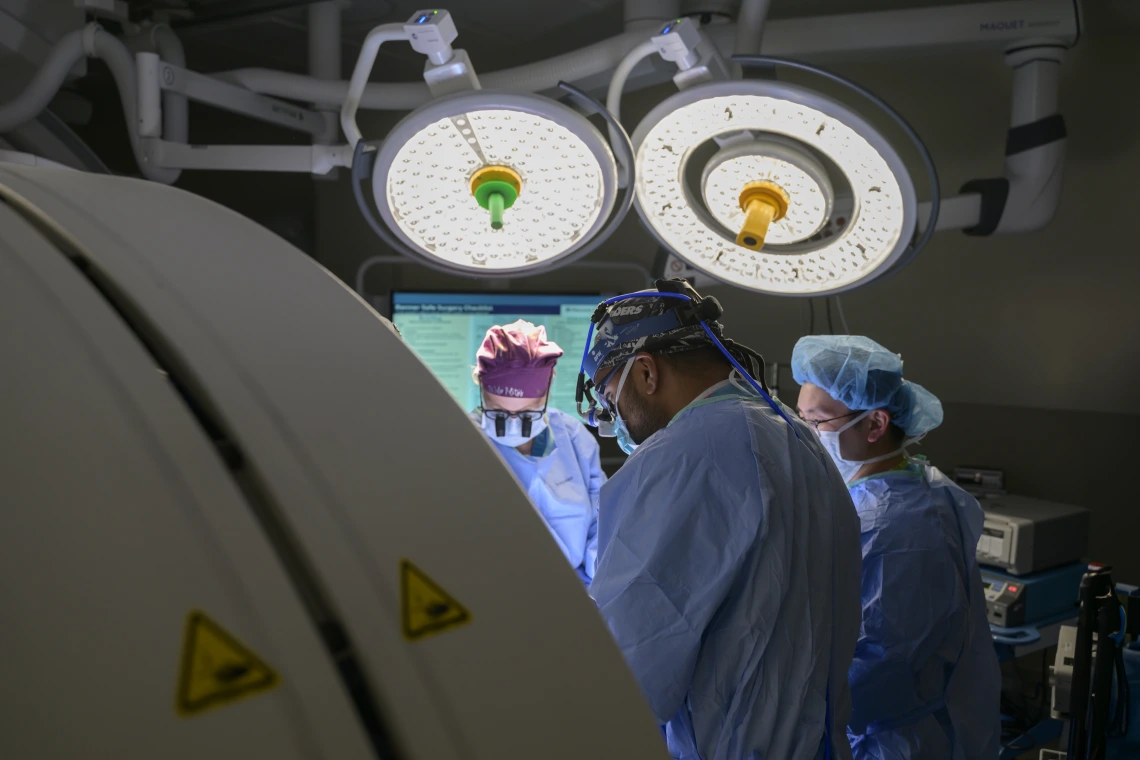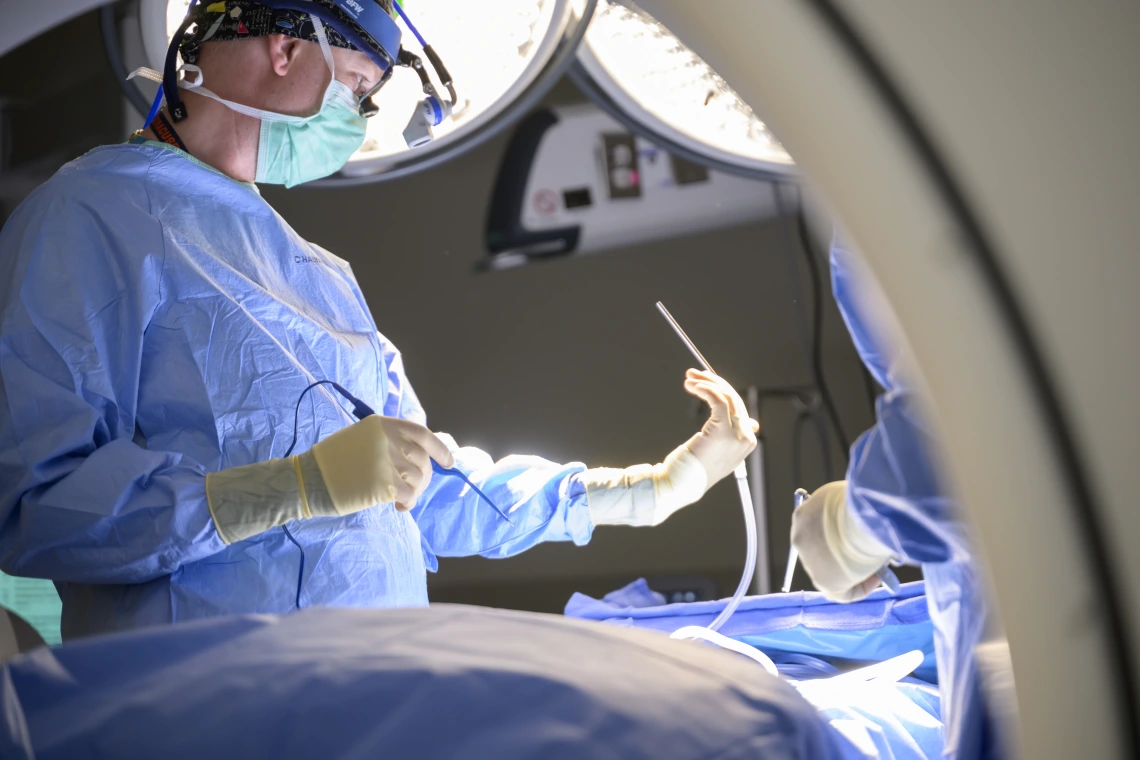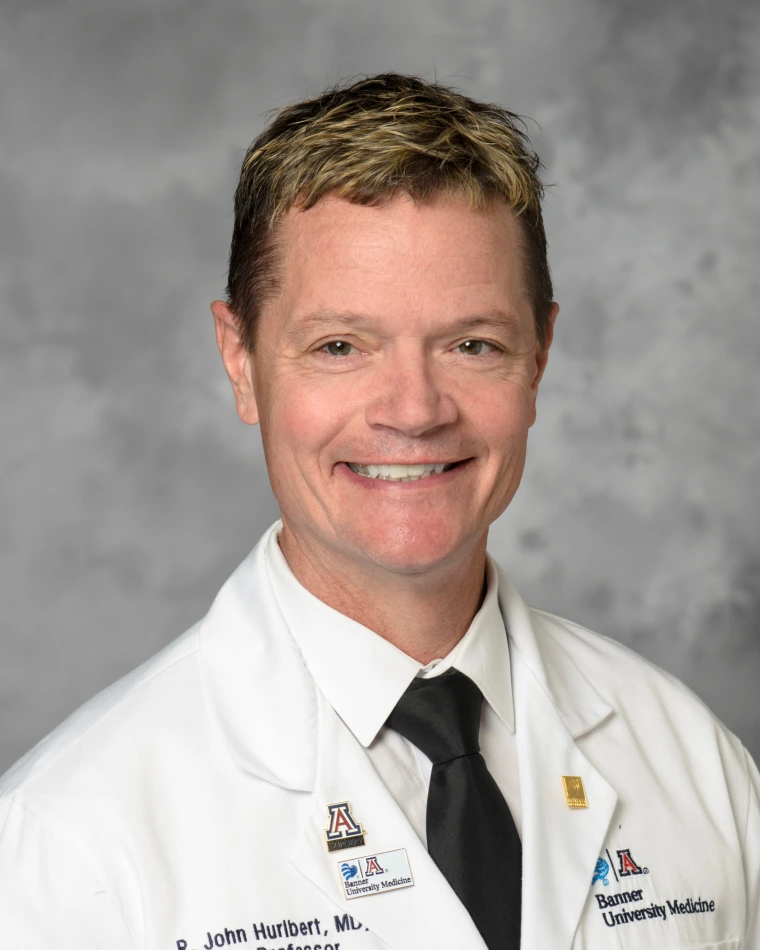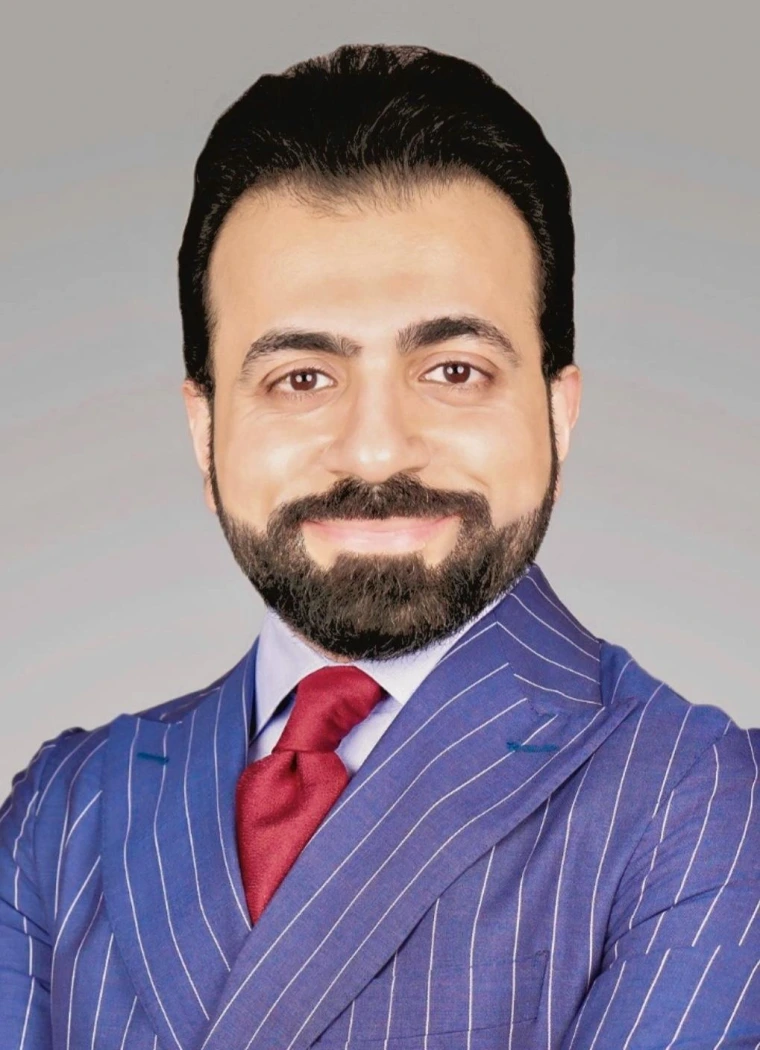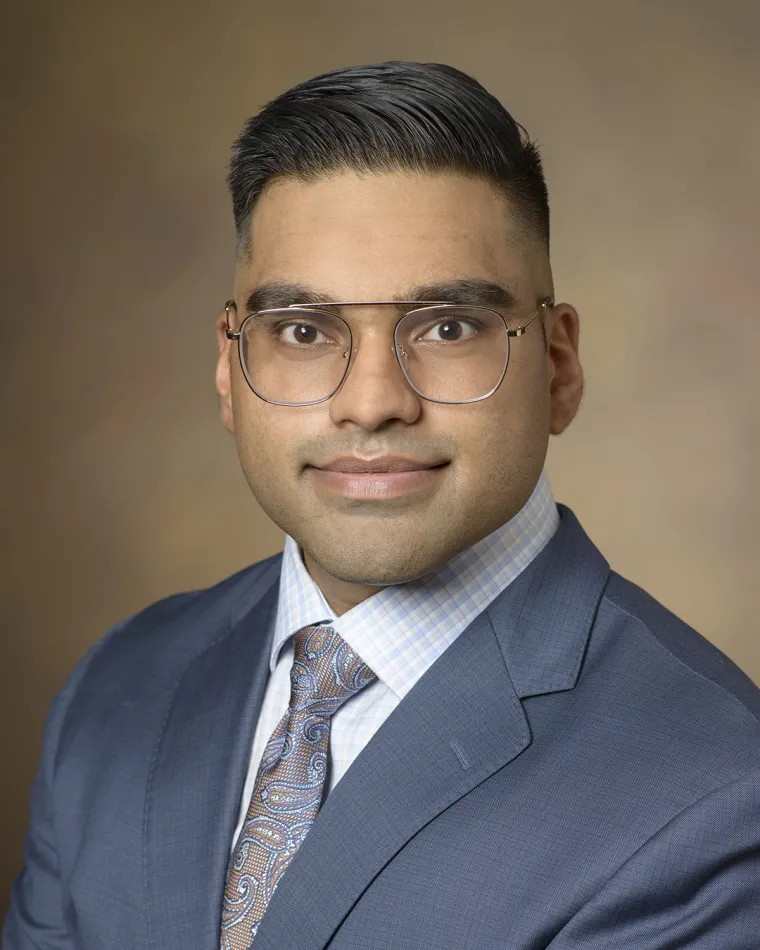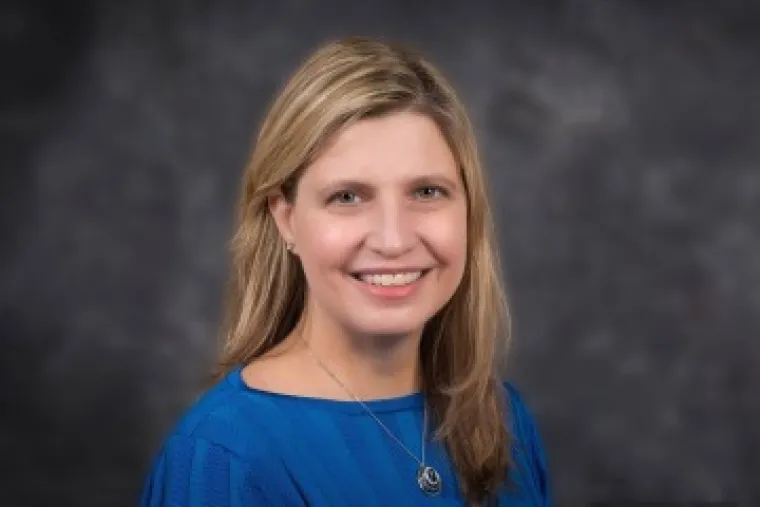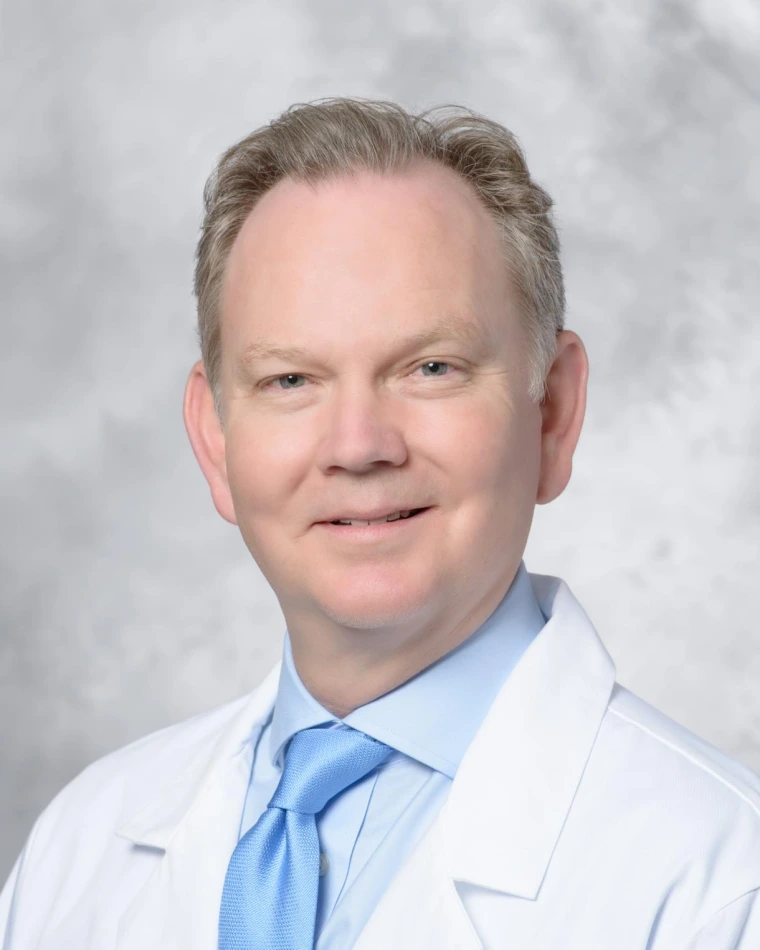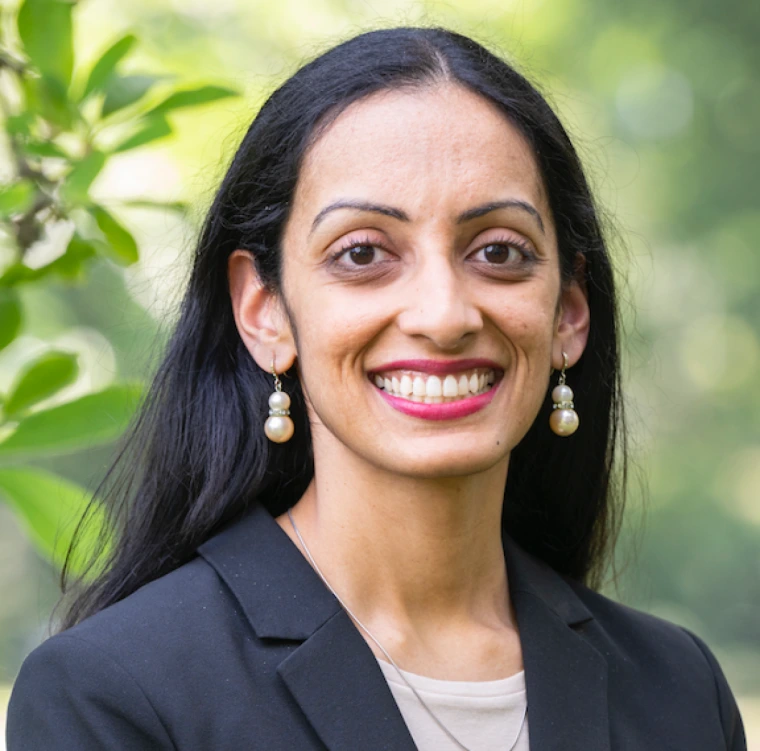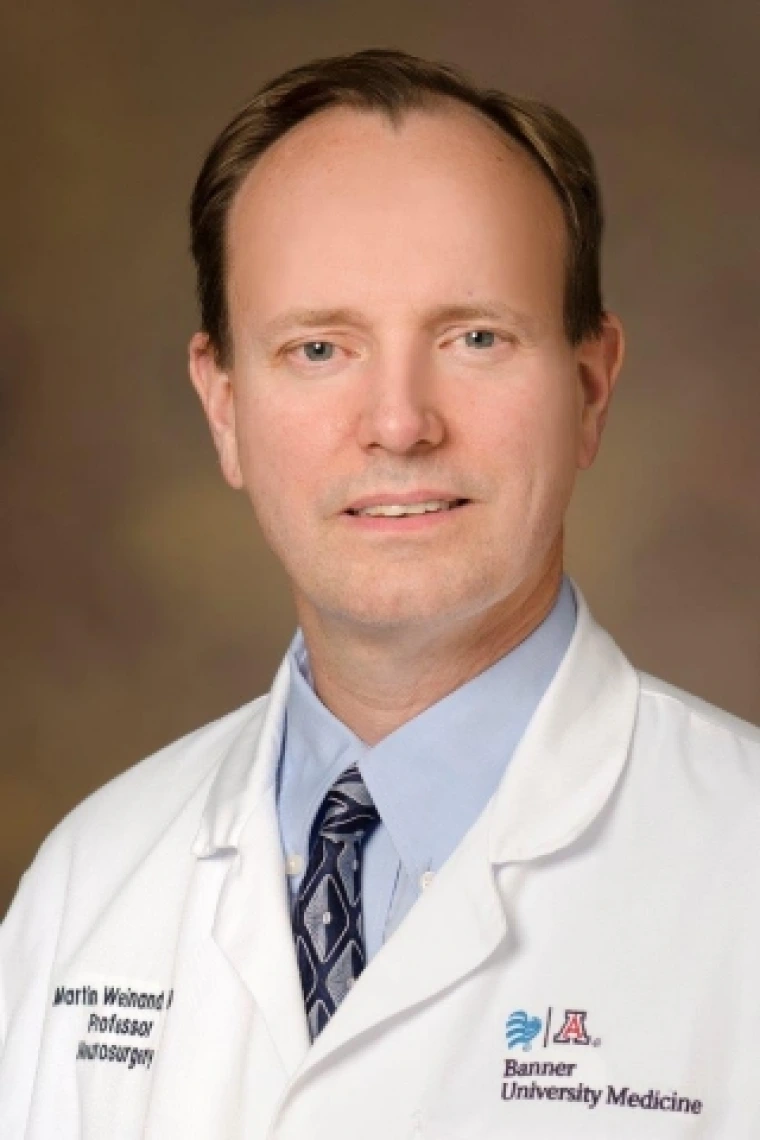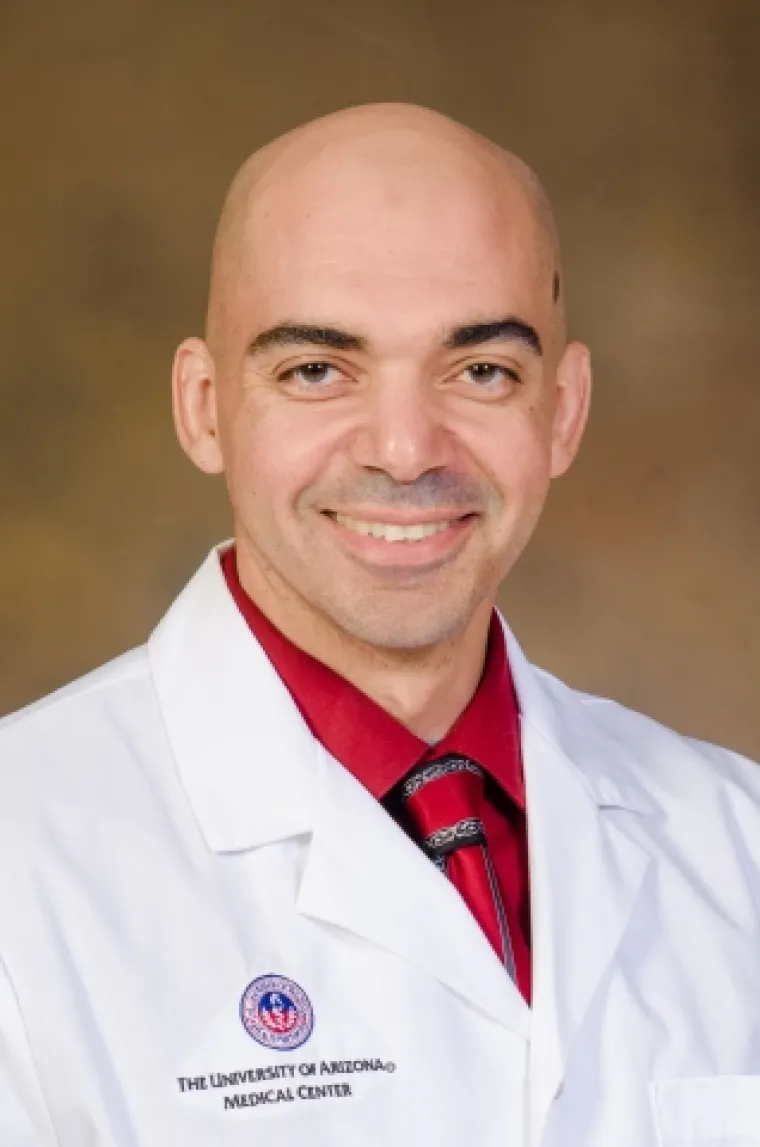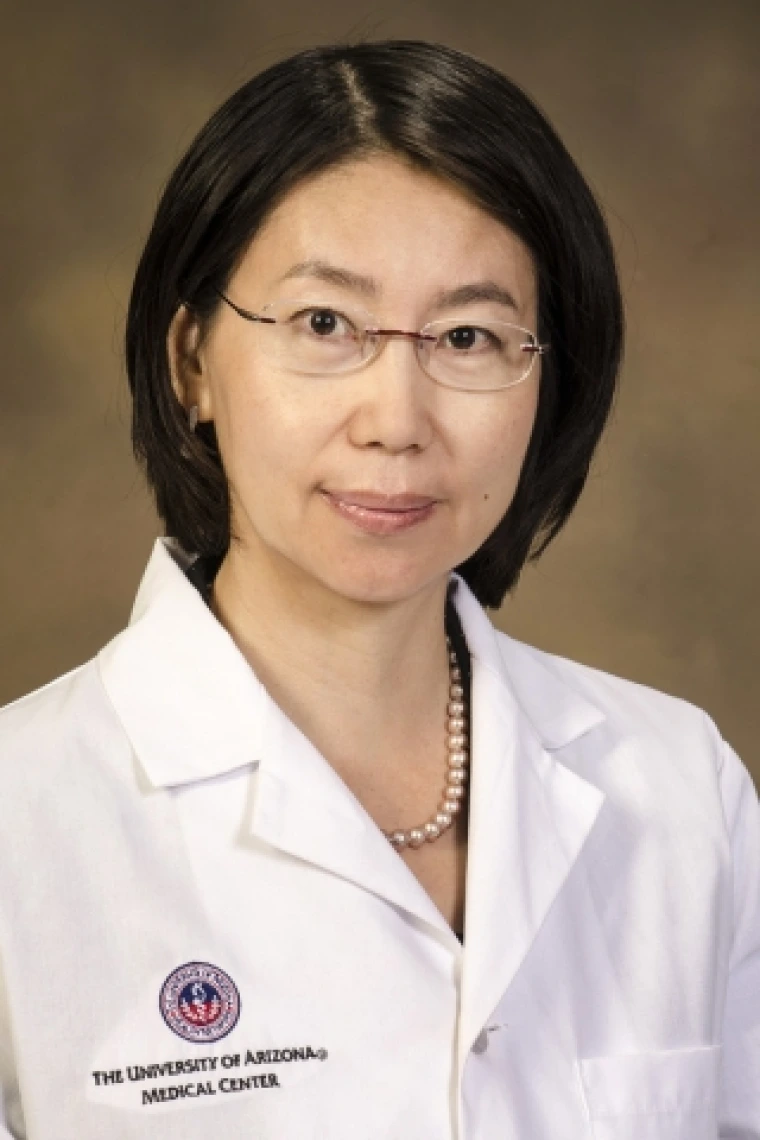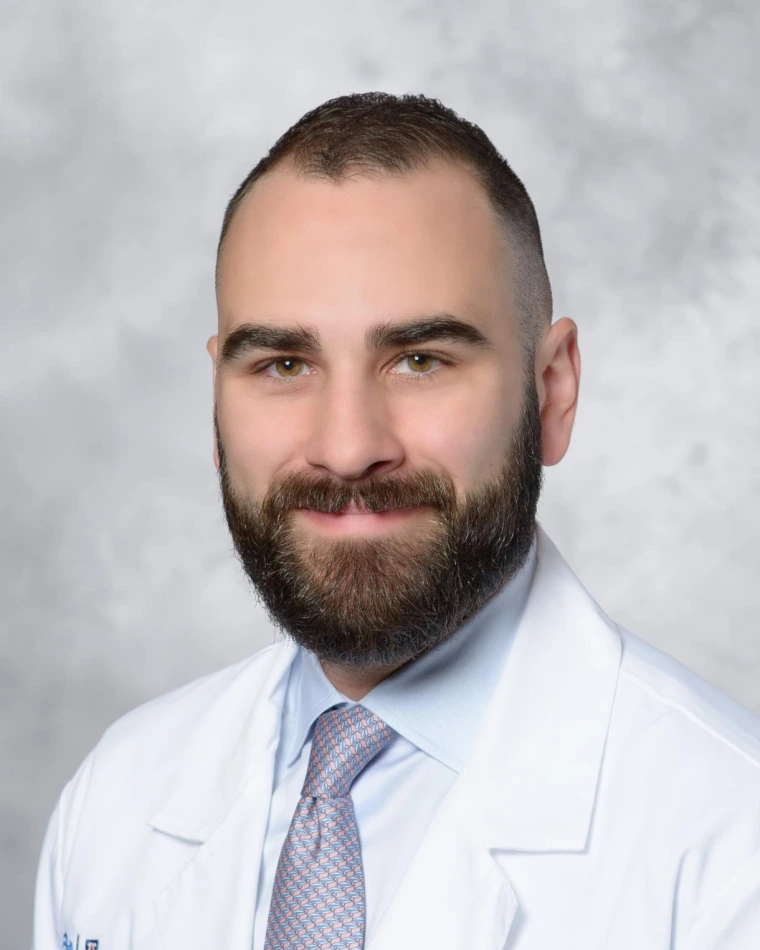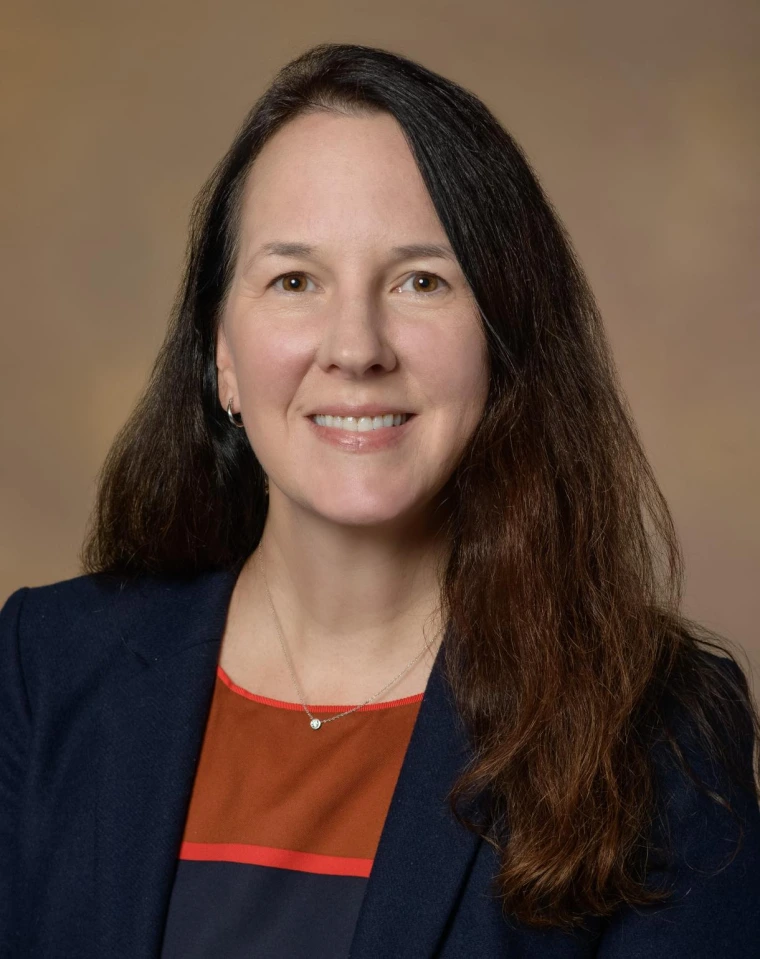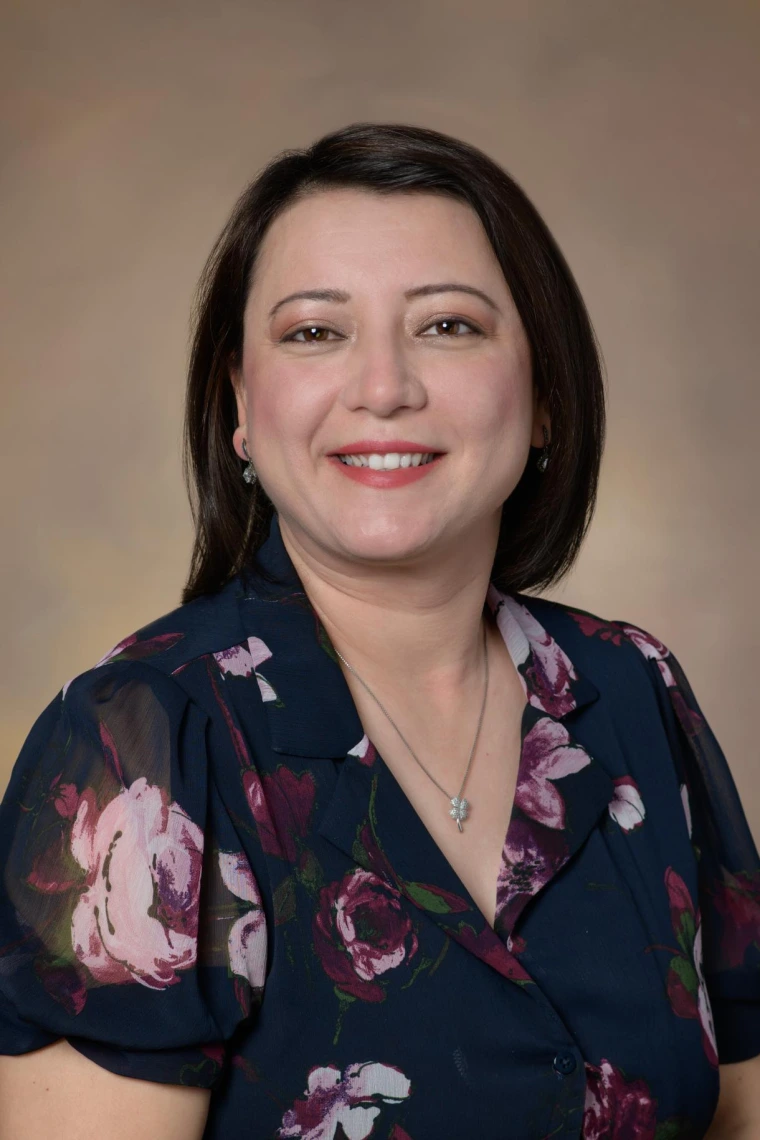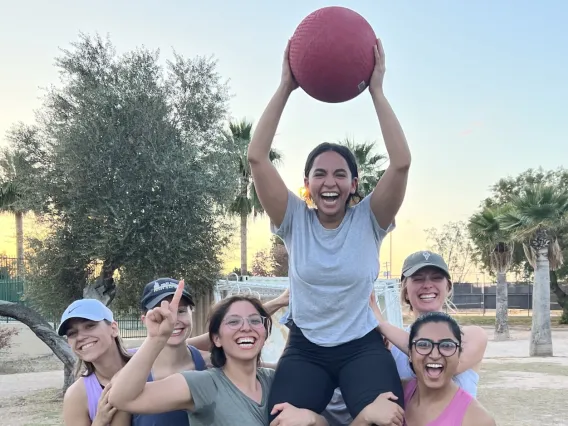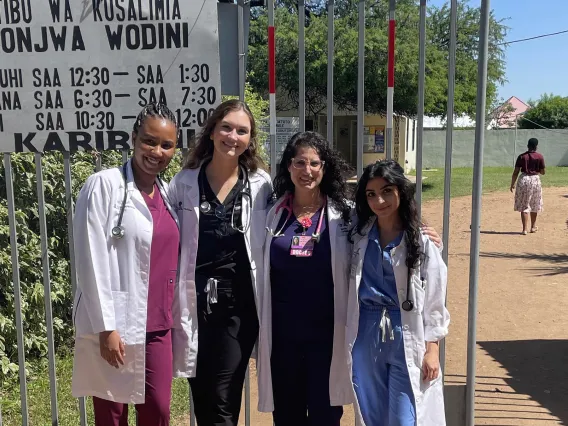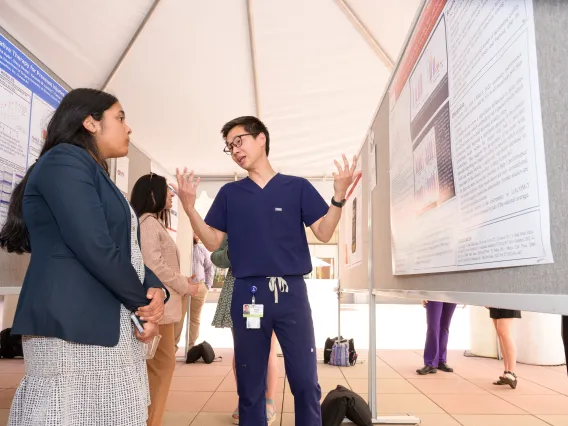Neurosurgery
Fellowship Programs
Welcome to the Neurosurgery Fellowship Programs at the University of Arizona College of Medicine – Tucson! The Department of Neurosurgery offers three fellowship programs that prepare the next generation of specialty physicians for independent practice and to be Board-eligible for the AAP subspecialties.
The Complex Spring Neurosurgery Fellowship Program is a one-year post-residency fellowship open to qualified orthopedic and neurological surgeons. The fellowship provides advanced training in complex spinal disorders, including:
- Degenerative disease
- Trauma (blunt and penetrating)
- Infection
- Spinal oncology
- Deformities
Fellows gain expertise in evaluating, diagnosing and managing complex spinal conditions beyond standard residency training.
The program includes:
- Clinical evaluation and patient management in inpatient and outpatient settings
- Supervised surgical training with advanced techniques
- Integration of operative and non-operative treatment approaches
- Research opportunities in clinical, anatomic, biomechanical and neuroscience fields
- Banner – University Medical Center Tucson, 1625 N. Campbell Ave., Tucson, AZ 85719
- University of Arizona College of Medicine – Tucson, 1501 N. Campbell Ave., Tucson, AZ 85724
- Banner – University Medical Center North Campus, 3838 N. Campbell Ave., Tucson, AZ 85719
| Graduation Year | Name | Medical School |
|---|---|---|
| 2025 | Luis A. Robles, MD | Facultad de Medicina, Universidad de Guadalajara, Guadalajara Jalisco, Mexico |
Program Director
Faculty
The Department of Neurosurgery offers a 12-month enfolded fellowship in Stereotactic and Functional Neurosurgery for qualified PGY-7 residents or post-residency neurosurgeons at Banner – University Medical Center Tucson.
This comprehensive program provides advanced clinical and research training in the evaluation, diagnosis, and surgical management of functional and movement disorders, with a focus on stereotactic systems, neuromodulation, and the integration of operative and non-operative therapies.
Key elements include:
- Advanced training in stereotactic and functional neurosurgery
- Hands-on experience with framed and frameless stereotactic systems, radiosurgery, electrical recording and stimulation
- Exposure to treating movement disorders, epilepsy, chronic pain, degenerative diseases, neurological injuries and psychiatric disorders
Clinical Exposure
- Preoperative evaluation and indications for surgery (Parkinson’s disease, dystonia, tremor, etc.)
- Collaborative care with referring MDs, neurologists, psychologists and other specialists
- Initial exposure to neurophysiological localization (microelectrode recording/macrostimulation for DBS)
- Placement of neuromodulation hardware and programming
Didactic Learning
- In-depth study of pathophysiology of movement disorders, spinal cord stimulation, and theoretical bases for lesioning and electrical stimulation
- Introduction to basic elements of translational research
Advanced Clinical Skills
- Focused practice in image-guided DBS (MER/MRI) and spinal cord stimulation techniques
- Continued collaboration with multidisciplinary teams for surgical planning
- Programming and management of neuromodulation hardware
Research Activities
- Participation in clinical trials
- Start working on manuscript preparation, focusing on neuromodulation
Independent Research and Presentation
- Completion of at least one publication on neuromodulation
- Presentation of research at Grand Rounds
Advanced Clinical and Surgical Competency
- Full responsibility for the management of neuromodulation patients (pre-, intra- and postoperative care)
- Completion of any remaining clinical rotations and practice in the swine laboratory for specific projects
Final Evaluation and Transition
Preparation for independent practice in an academic or non-academic setting
- Banner – University Medical Center Tucson, 1625 N. Campbell Ave., Tucson, AZ 85719
- University of Arizona College of Medicine – Tucson, 1501 N. Campbell Ave., Tucson, AZ 85724
- Banner – University Medical Center Neurosciences Research Laboratory, 1501 N. Campbell Ave., Tucson, AZ 85724
Banner – University Medical Center North, 3838 N. Campbell Ave., Tucson, AZ 85719
Fellowship Leadership
Teaching Faculty
Neurology Leaders
Please send a letter of interest, current CV (with no time gaps) and three letters of recommendation to Stereotactic and Functional Fellowship Program Director Julie G. Pilitsis, MD, PhD, MBA, at jpilitsis@arizona.edu.
The Department of Neurosurgery offers a pre-residency fellowship providing comprehensive training across all neurosurgical subspecialties. This program is designed for graduates of LCME-accredited medical schools seeking hands-on experience before residency. Highlights include:
- Exposure to the full spectrum of neurological surgery
- Hands-on experience in patient evaluation, diagnosis and management
- Opportunity to present a Grand Rounds lecture to faculty and house officers
Fellows will gain clinical experience in neurosurgical subspecialties, participate in patient care and engage in academic activities, including case discussions and research opportunities.
- Banner – University Medical Center Tucson
- University of Arizona College of Medicine – Tucson
- Banner – University Medical Center North
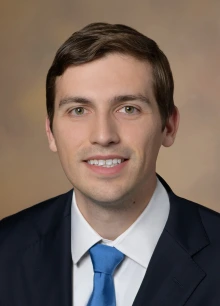
Fellowship Leadership
Fellowship Program Administrator
Teaching Faculty
Neurology Leaders
Qualified applicants must be graduates of an LCME-accredited medical school and eligible for an Arizona Board of Medical Examiners Transitional Training Permit (AZ Medical Board - Licensure).
Recruitment for Academic Year 2026-2027 has begun.
To apply, submit the following to Julie Schippers:
- Letter of Interest
- CV (no gaps from undergraduate to present)
- Proof of passing USMLE/COMLEX on first attempt
- Three letters of recommendation
- MSPE
- Medical school transcripts
Applications are now being accepted through March 16, 2026.
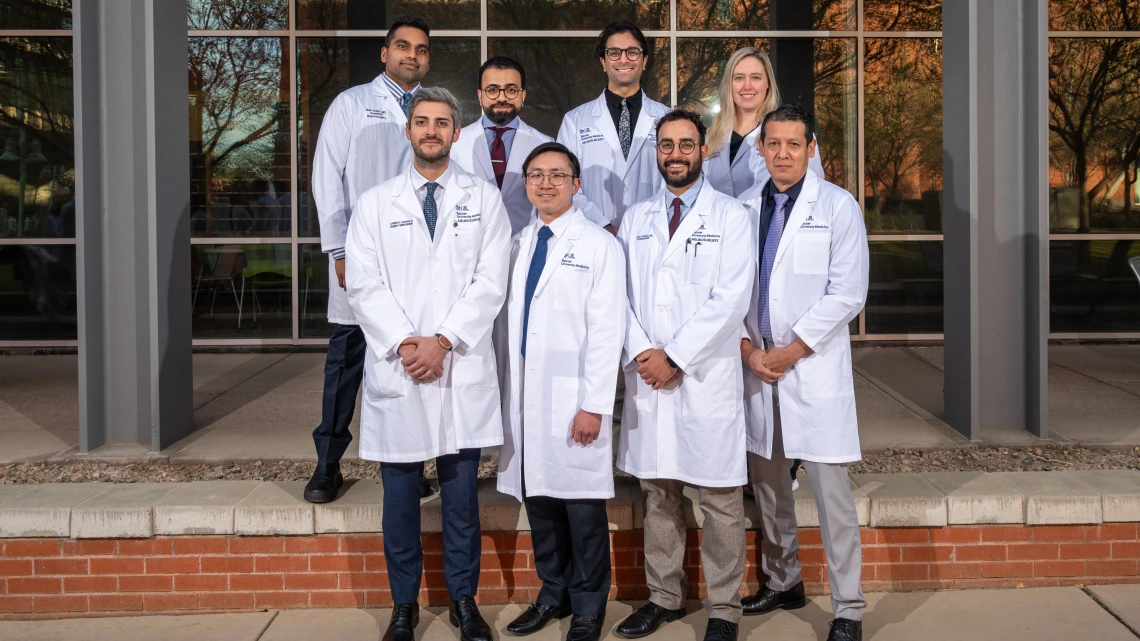
Training in Tucson


